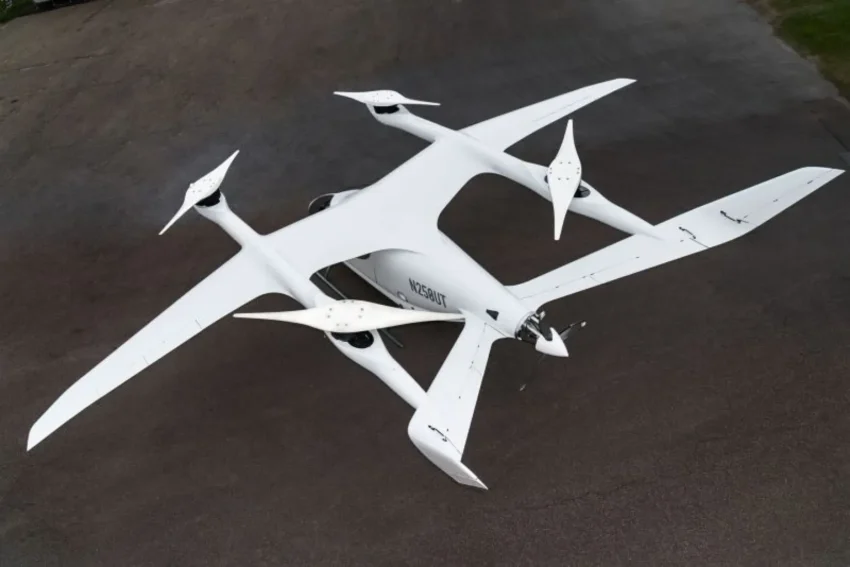In the burgeoning realm of electric aviation, Beta Technologies is carving out its unique identity under the leadership of Kyle Clark. Rejecting the typical route of venture capital funding and the allure of Silicon Valley, Clark has chosen to establish his company in the serene landscape of Vermont. This unconventional choice reflects a broader philosophy that prioritizes integrity and innovation over the pressures of external investors. On a memorable November morning, Clark piloted the Alia CX300, Beta’s first electric aircraft, marking a significant milestone for the company and the industry. As we delve deeper into Beta’s journey, we uncover the story of a visionary who sees beyond the horizon of traditional aviation, embracing a future defined by sustainable flight.
| Attribute | Details |
|---|---|
| Company Name | Beta Technologies |
| Founder & CEO | Kyle Clark |
| Headquarters | Vermont, USA |
| First Electric Aircraft | Alia CX300 |
| Flight Date | November 13, 2022 |
| Notable Achievements | First airport-to-airport mission in NY, multiple piloted tests |
| Funding Raised | $1.15 billion from institutional investors |
| Competitors | Archer Aviation and Joby Aviation |
| Business Model | Focus on electric aircraft production and EV aircraft charging |
| Key Customers | Air New Zealand, United Therapeutics, UPS, U.S. Air Force |
| Production Capacity | 300 aircraft at peak capacity |
| Unique Approach | Rejects venture capital, focuses on customer-backed orders |
| Future Plans | Begin operations in 2025, expand charging network to 150 sites |
The Visionary Behind Beta Technologies
Kyle Clark, the founder and CEO of Beta Technologies, has forged a unique path in the electric aviation industry. His journey began in Vermont, where he chose to establish his company away from the bustling tech hubs like Silicon Valley. This decision reflects his commitment to building a different culture within Beta, one that emphasizes innovation and reliability. Clark’s background as a former professional hockey player and flight instructor complements his technical expertise, making him a well-rounded leader in this pioneering field.
Under Clark’s leadership, Beta has taken significant steps to revolutionize air travel with its electric aircraft. His hands-on approach, from designing to assembling, allows him to ensure every part of the Alia CX300 meets high standards. Clark’s philosophy of keeping promises is not just about business; it’s about building trust with his team and investors. By prioritizing integrity and innovation, Beta Technologies is not just creating aircraft; it’s setting a new standard in the aviation industry.
Innovative Aircraft Designs
Beta Technologies has introduced two distinct aircraft models, the Alia CX300 eCTOL and the Alia A250 eVTOL, both designed with cutting-edge technology. Unlike competitors who focus solely on electric vertical takeoff and landing vehicles, Beta’s approach allows for versatility in air travel. The eCTOL is perfect for regional flights, while the eVTOL caters to urban environments. This dual strategy not only broadens Beta’s potential customer base but also streamlines production processes, making it easier to achieve certification and launch.
The design philosophy behind Beta’s aircraft centers on efficiency and reliability. By clustering batteries beneath the seats, Beta can ensure that all motors have access to power, enhancing safety during flights. This innovative approach contrasts sharply with competitors who place batteries separately, highlighting Clark’s commitment to creating dependable aircraft. As the aviation industry shifts toward electric solutions, Beta’s designs stand out for their practicality and focus on user experience, positioning the company for future success.
Navigating the Competitive Landscape
Beta Technologies operates in a highly competitive market, facing off against giants like Archer Aviation and Joby Aviation. While Archer and Joby focus on consumer-oriented eVTOLs, Beta sets itself apart by establishing a robust electric aircraft charging network and securing lucrative contracts with major clients such as Air New Zealand and the U.S. Air Force. This strategic positioning allows Beta to carve out its niche in the market, emphasizing its commitment to both commercial and military applications.
Despite its smaller size and lower profile compared to its competitors, Beta has made significant strides in piloted flights and customer orders. Clark’s decision to forgo venture capital funding gives the company more control over its direction and growth. By focusing on building a sustainable business model grounded in customer commitments, Beta can compete effectively against well-funded rivals. This unique approach not only boosts investor confidence but also sets a foundation for long-term success in electric aviation.
Commitment to Sustainability and Efficiency
Sustainability is at the core of Beta Technologies’ mission. By developing electric aircraft, the company aims to reduce the carbon footprint of air travel significantly. Clark emphasizes the importance of creating aircraft that are not only environmentally friendly but also economically viable. This dual focus ensures that Beta can attract a wide range of customers, from commercial airlines to military organizations, all looking for sustainable solutions in their operations.
In addition to producing electric aircraft, Beta is also pioneering an electric aviation charging network. With 46 charging sites already operational, the company plans to expand to 150 sites by 2025. This infrastructure is crucial for supporting the widespread adoption of electric aircraft. By investing in charging technology, Beta not only enhances the practicality of its aircraft but also positions itself as a leader in the electric aviation ecosystem, paving the way for a greener future in transportation.
The Role of Innovation in Beta’s Success
Kyle Clark’s innovative mindset is a driving force behind Beta Technologies’ success. His experience in power electronics and engineering has allowed him to design aircraft that prioritize reliability and performance. Clark’s unique approach to aircraft design, such as the clustering of batteries, showcases his commitment to safety and efficiency. This focus on innovation is critical in the rapidly evolving electric aviation industry, where staying ahead of the competition is essential for survival.
Moreover, Beta’s manufacturing facility is equipped to produce aircraft at peak capacity, highlighting Clark’s dedication to operational excellence. By integrating advanced manufacturing techniques and efficient production processes, Beta can maintain high standards while managing costs effectively. This innovative spirit not only enhances the company’s credibility but also attracts investors and customers who appreciate a forward-thinking approach to aviation. As electric aviation continues to grow, Beta’s commitment to innovation will be key to its long-term success.
Future Prospects for Electric Aviation
The future of electric aviation looks promising, with Beta Technologies poised to play a significant role in this exciting industry. As more companies and consumers embrace sustainable air travel, Beta’s electric aircraft will be well-positioned to meet the increasing demand. With anticipated FAA certifications for its aircraft, Beta aims to be a frontrunner in commercial electric flight, paving the way for a new era of aviation that prioritizes environmental responsibility.
Beta’s strategic partnerships with major customers like Air New Zealand and UPS also signal a bright future. These collaborations not only provide immediate revenue opportunities but also establish Beta as a trusted player in the industry. As the company continues to innovate and expand its operations, it is likely to inspire other businesses to follow suit. With a focus on sustainability, efficiency, and cutting-edge technology, Beta Technologies is set to make a lasting impact on the future of air travel.
Frequently Asked Questions
What is Beta Technologies known for?
Beta Technologies is known for developing electric aircraft, focusing on creating innovative models like the Alia CX300 and A250, along with a network of electric aircraft charging stations.
Who is the founder of Beta Technologies?
Kyle Clark, a former professional hockey player and flight instructor, founded Beta Technologies to revolutionize electric aviation.
Where is Beta Technologies headquartered?
Beta Technologies is headquartered in Vermont, standing out from competitors based in Silicon Valley.
What makes Beta’s aircraft design unique?
Beta’s aircraft design includes clustered batteries for improved reliability, contrasting with competitors who distribute batteries across the aircraft.
How does Beta Technologies fund its operations?
Beta has raised $1.15 billion from institutional investors without venture capital, ensuring financial stability by only accepting backed orders.
What are eCTOL and eVTOL aircraft?
eCTOL (electric Conventional Takeoff and Landing) aircraft are designed for regional flights, while eVTOL (electric Vertical Takeoff and Landing) aircraft are suitable for urban transport.
When does Beta plan to start operations?
Beta Technologies plans to commence operations in 2025, with initial customers including Air New Zealand.
Summary
Kyle Clark, founder and CEO of Beta Technologies, is pioneering electric aviation with a unique approach, headquartered in Vermont instead of Silicon Valley. Last November, he piloted the Alia CX300, Beta’s first electric aircraft, in a successful inaugural flight. Clark emphasizes keeping promises and has chosen not to accept venture capital, focusing instead on solid customer orders. Beta’s strategy includes creating both conventional and vertical takeoff electric aircraft, with plans to launch operations in 2025. The company has secured significant contracts, including a deal with Air New Zealand, and aims to expand its electric aircraft charging network across the U.S. and beyond.






